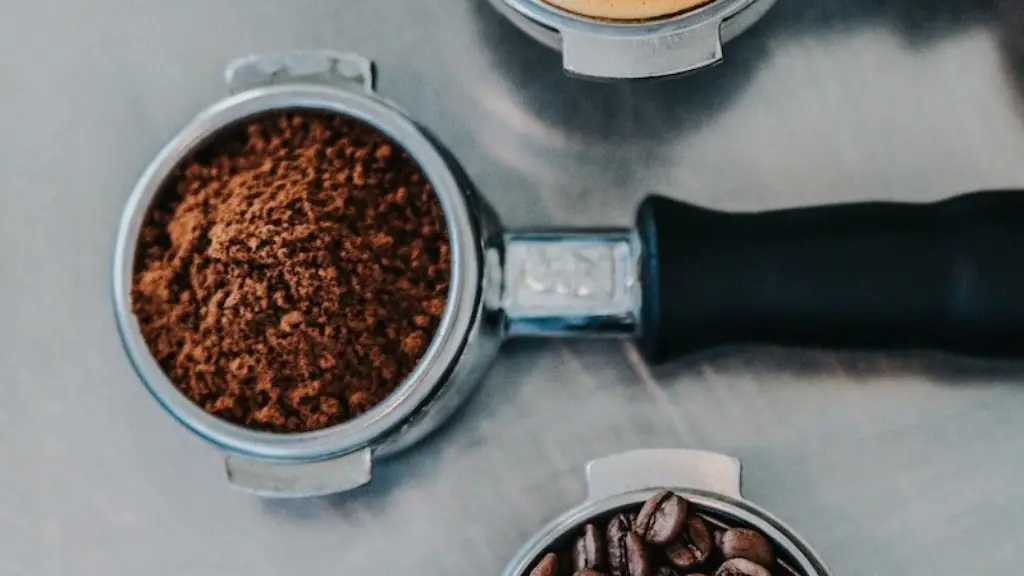When it comes to pregnancy, caffeine is a big no as it can lead to high blood pressure, diabetes and even miscarriage. But this does not mean pregnant women cannot drink decaffeinated coffee. While there are conflicting opinions on the issue, most health care providers and experts agree that, in moderation, decaffeinated coffee is okay for pregnant women.
Many expectant mothers may have heard that drinking any type of coffee can increase the risk of having a low birthweight baby. However, there is no scientific evidence of this if the mother drinks decaffeinated coffee. Some studies even suggest that pregnant women who drink decaffeinated coffee may have healthier babies than those who do not drink any at all, as decaffeinated coffee can be a source of antioxidants and other vitamins and minerals.
As with any food or beverage, moderation is the key. Most health care providers recommend that pregnant women limit their intake of decaffeinated coffee to no more than one or two cups per day. While pregnant women should not overdo it on decaffeinated coffee, it can be a nice treat every now and then.
It is important to note that decaffeinated coffee still contains trace amounts of caffeine. While the amount is considerably less than that of caffeinated coffee, it can still affect pregnant women. Caffeine can disrupt sleep, cause headaches, increase heart rate and blood pressure, and disrupt digestion. Therefore, it is important for pregnant women to keep their caffeine intake to a minimum, whether from decaffeinated coffee or any other source.
Decaffeinated coffee can also be a good source of hydration. This can be particularly beneficial for pregnant women, as dehydration can lead to a number of complications. Therefore, pregnant women should make sure to drink plenty of water in addition to any caffeinated or decaffeinated coffee they may drink.
It is also important to consider the ingredients in decaffeinated coffee. Many commercial brands add sugar, cream, and other unhealthy ingredients. Therefore, pregnant women should avoid those and stick to plain decaffeinated coffee whenever possible. If they do prefer a sweeter cup of coffee, they can opt for a sugar-free option or use a low-calorie sugar substitute.
While decaffeinated coffee can be a nice treat for pregnant women, it is important to make sure it is consumed in moderation. Too much can lead to complications, and it is important for pregnant women to pay attention to the other ingredients in their coffee and make sure they are being mindful of their caffeine intake. With the help of their health care provider, most pregnant women can enjoy a cup of decaffeinated coffee every now and then.
Facts & Figures
Research on the topic is still inconclusive, but most studies suggest that up to two cups per day of decaffeinated coffee could be enjoyed during pregnancy without any risk of negative health effects. However, as with any food or beverage, it is best to consult with a health care provider before consuming decaffeinated coffee or any other type of coffee.
The National Institutes of Health recommends pregnant women consume no more than 200 milligrams of caffeine daily. As a general rule of thumb, one 8 ounce cup of decaffeinated coffee contains 2-12 milligrams of caffeine, while one 8 ounce cup of caffeinated coffee contains 95-200 milligrams of caffeine.
Alternatives To Decaffeinated Coffee
While decaffeinated coffee can be enjoyed in moderation, there are also other ways for pregnant women to get their caffeine fix. Herbal tea and caffeine-free sodas are great alternatives that can provide an energy boost without the risk of caffeine-induced side effects.
Smoothies are also great options for pregnant women looking for a healthier source of energy. They can be made with fresh fruits, vegetables, and nuts, which all provide essential vitamins and minerals that can benefit both the mother and her developing baby.
Chocolate is another great option for pregnant women. Dark chocolate is high in anti-oxidants and can provide a quick energy boost. However, it is important to make sure it is eaten in moderation, as it is still high in sugar and calories.
Benefits Of Decaffeinated Coffee
Decaffeinated coffee can provide a number of benefits for expectant mothers. It can increase mental alertness and help with physical fatigue. It can also reduce headaches and alleviate morning sickness, as the smell of coffee can be calming and soothing.
Decaffeinated coffee may also help with constipation, which is a common problem during pregnancy due to the hormonal changes. The antioxidants and other vitamins and minerals in the coffee can help stimulate the digestive system and prevent dehydration.
Decaffeinated coffee can also help pregnant women stay hydrated. While the amount of caffeine in decaffeinated coffee is considerably less than in caffeinated coffee, drinking too much can still leave someone dehydrated. Staying hydrated is important during pregnancy, as dehydration can lead to complications.
Finally, decaffeinated coffee can be a nice treat for pregnant women. Pregnancy cravings can be intense and can affect the mother’s overall health. Enjoying a cup of decaffeinated coffee can help satisfy cravings without consuming unhealthy foods.
Risks Of Decaffeinated Coffee
Although most health care providers and experts agree that small amounts of decaffeinated coffee are safe for pregnant women, there are still risks associated with drinking too much.
High amounts of caffeine, whether from caffeinated or decaffeinated coffee, can lead to a number of complications. These include an increased risk of miscarriage, preterm birth, and low birthweight babies. It can also lead to increased heart rate, blood pressure, and nausea.
Decaffeinated coffee can also contain added sugar, cream, and other unhealthy ingredients. Therefore, it is important to check the label and make sure that the coffee is plain and free of these ingredients.
Finally, it is important to remember that caffeine is not the only factor to consider when it comes to decaffeinated coffee. Too much can lead to dehydration, which can lead to a number of complications. Therefore, it is important for pregnant women to make sure they are drinking plenty of water in addition to their coffee.
Coffee During Breastfeeding
If a mother has been drinking decaffeinated coffee while pregnant, she can continue to enjoy it while she is nursing. The caffeine will pass through the breast milk, but it is a small amount that will not affect the baby. However, it is important to keep in mind that too much caffeine can still be a problem, as it can make the baby fussy and decrease the amount of sleep.
It is also important for nursing mothers to pay attention to their caffeine intake from all sources. Too much caffeine can lead to irritability, headaches, and insomnia. Therefore, it is important to limit caffeine intake from all sources, including decaffeinated coffee.
Finally, nursing mothers should always make sure to hydrate adequately. Dehydration can lead to a decrease in breast milk production, which can be a problem for both mother and baby. Therefore, it is important to make sure to drink plenty of water in addition to any coffee.
Conclusion
In conclusion, most health care providers and experts agree that, in moderation, decaffeinated coffee is safe for pregnant women. However, it is important to keep in mind that too much can lead to complications and it is important to pay attention to the other ingredients in the coffee. It is also important to make sure to drink plenty of water in addition to any caffeine, whether from decaffeinated or caffeinated coffee.





